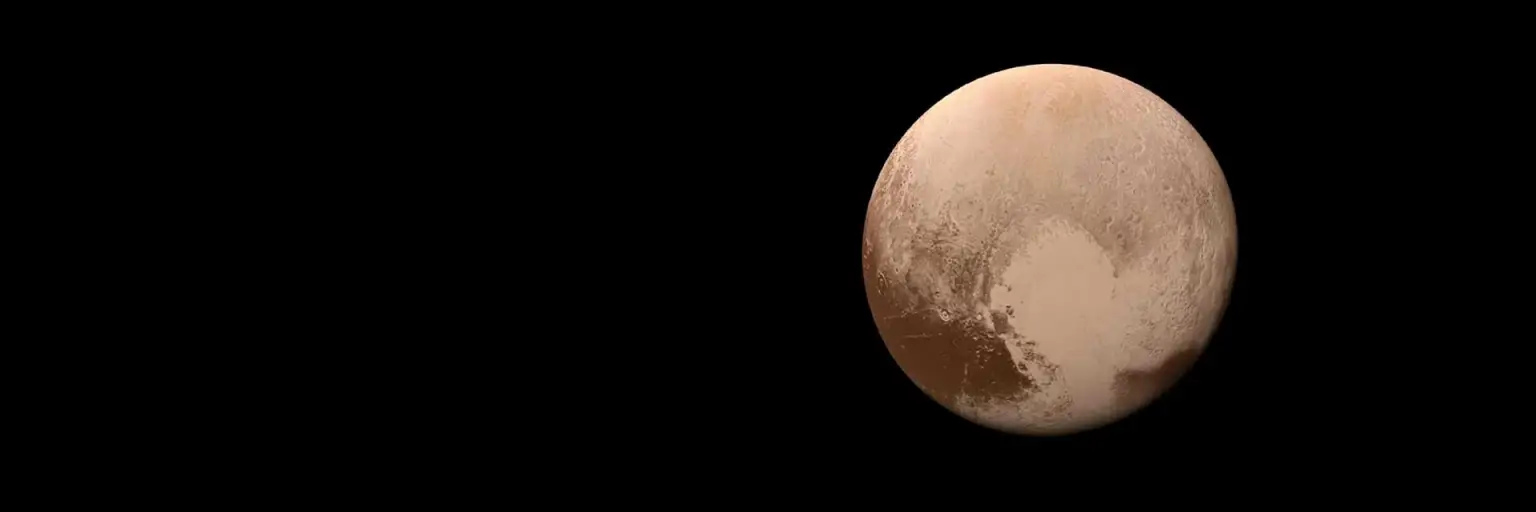The decision to “demote” Pluto from planetary status back in 2006 caused a wave of disappointment and anger towards the International Astronomical Union (IAU). The backlash from this shows us the dangers of nostalgic thinking.
But why was Pluto no longer considered a planet, seemingly out of nowhere? It was not any sudden discoveries made, but rather a re-evaluation of an old term.
At the time of Pluto being established as a planet, there wasn’t a clear definition of what a “planet” even was. When the IAU gathered to establish the criteria for planet classification, they landed on three requirements:
- A planet must orbit around the sun.
- A planet must be large enough to maintain a mostly round shape.
- A planet must “clear the neighborhood” around its orbit.
Pluto satisfies all of these requirements, except for the third one. Pluto’s gravitational pull isn’t dominant enough to push out surrounding objects of comparable size such as the objects in the Kuiper Belt, a large region of icy celestial bodies located far past Neptune.
As such, Pluto is no longer considered a planet and has instead earned the label of a “dwarf planet” alongside other dwarf planets found in the Kuiper Belt such as Eris, Makemake, Haumea, and Ceres which is the only dwarf planet not located in the Kuiper Belt but rather between Mars and Jupiter.

BYJUS
While Pluto was no longer considered a planet, it instead became the figurehead of a whole new classification of celestial bodies and entire region of our solar system. An upgrade rather than a downgrade for those interested in astronomy.
This was not how it was received by the public however.
A lot of people were furious at the decision. Pluto has had a lot of cultural significance. From its discovery being a source of hope for Americans going through the Great Depression to a people growing a fondness for Pluto for being the smallest planet and an underdog of sorts in the solar system, Pluto has meant a lot of things to a lot of people. And people have not wanted to let Pluto go.
An important thing to note: Pluto is not alive. Pluto itself hasn’t changed physically since its demotion, it’s still the same Pluto people loved before.
People can internally recognize this fact, so what’s causing the great uproar over this decision that still rages on to this day? If no one got hurt, why does this reclassification of Pluto strike people to be a great injustice?
As mentioned earlier, Pluto meant a lot to many people. Generations of kids grew up with the memory of Pluto being the ninth and smallest planet, and the idea of what they knew to be true changing suddenly irked people.
It’s nostalgia, the idea that what we had in the past was better or that current advancements are trying to fix what isn’t broken is leading people to be stubborn towards change.
While ultimately this is a benign example of this phenomenon, it shows how dangerous letting nostalgia cloud your opinions can really be. People become so fixated on Pluto being a planet they developed an incuriosity to a whole new classification of celestial bodies.
Similar forms of emotional thinking are often exploited to push far more harmful ideas. Consider how a sense of nostalgia for what “culture” we used to have is used to encourage people to be bigoted.
Dwarf planets and the Kuiper Belt are fascinating parts of our solar system, and deserve more attention from regular folk that aren’t centered around what classification Pluto “deserves.” Pluto itself will live on, as the most well known example of a whole new classification of space objects and a reminder of the harms of letting emotions get in the way of reasoning.
Click here to learn more about objects in the Kuiper Belt. Click here to learn more about other space objects that lay beyond Neptune

